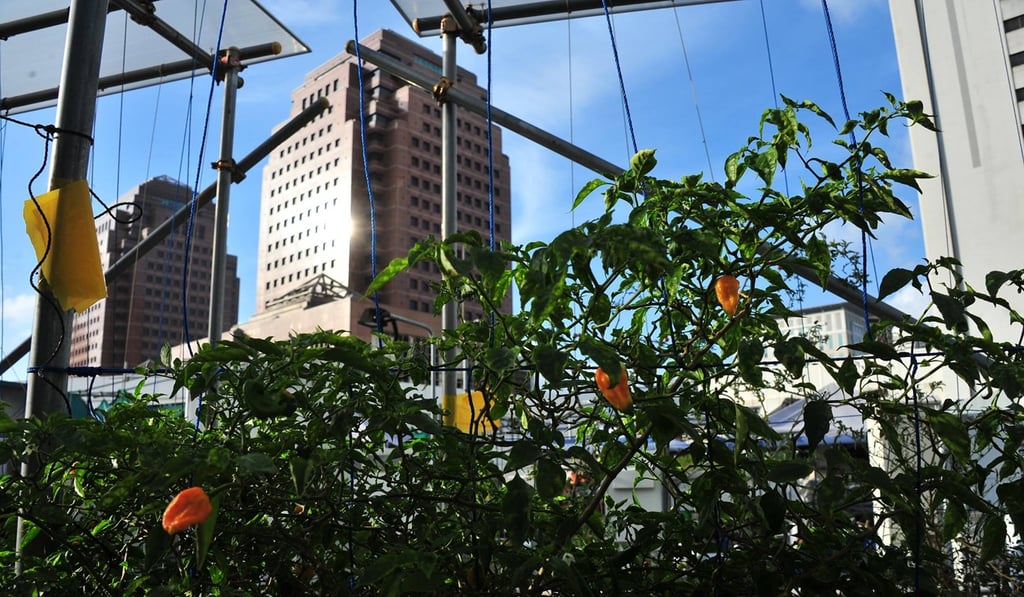As Singapore runs out of room, rooftop farms offer solution to concerns about food security
- While Singapore scores high in food safety, availability and affordability, its food security is susceptible to climate change risks
- Singapore was once an agrarian economy that produced nearly all its own food but industrialisation has since taken priority

Visitors to Singapore’s Orchard Road, the city’s main shopping belt, will find fancy malls, trendy department stores, abundant food courts – and a small farm.
Comcrop’s 600-square-metre farm on the roof of one of the malls uses vertical racks and hydroponics to grow leafy greens and herbs that it sells to nearby bars, restaurants and stores. The farm’s small size belies its big ambition: to help improve the city’s food security.
Comcrop’s Allan Lim, who set up the rooftop farm five years ago, recently opened a 4,000-square-metre farm with a greenhouse on the edge of the city. He believes hi-tech urban farms are the way ahead for the city, where more land cannot be cultivated.
“Agriculture is not seen as a key sector in Singapore. But we import most of our food, so we are very vulnerable to sudden disruptions in supply,” Lim said. “Land, natural resources and low-cost labour used to be the predominant way that countries achieved food security. But we can use technology to solve any deficiencies.”

Singapore last year topped the Economist Intelligence Unit’s (EIU) Global Food Security Index of 113 countries for the first time, scoring high on measures such as affordability, availability and safety. Yet, as the country imports more than 90 per cent of its food, its food security is susceptible to climate-change and natural resource risks, the EIU noted.